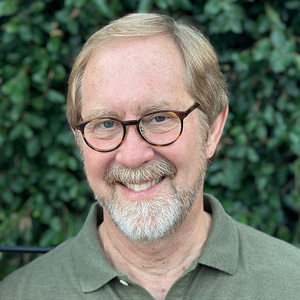We run on hope.
Hope gets us out of bed—it energizes us, it focuses our attention, it pulls us out of ourselves. Hope overcomes our fears.
As Tim Keller puts it, “Human beings are hope-shaped creatures. The way you live now is completely controlled by what you believe about your future.”[1]
Hope, as Keller suggests, is how we think about our future.
Hope is seeing our future as good—believing that things will be okay.[2]
According to Talbot Professor of Philosophy Greg Ganssle,
Hope is largely future oriented, but it is a present construal about my future. . . . My present ability to navigate the world with confidence requires that I construe my future as good. Thus cultivating hope is not an escapist strategy to avoid the present. It is, rather, essential to navigating life now.[3]
Hope changes everything.
The power of hope
I learned the power of hope in graduate school. I was required to write a dissertation—a long, arcane, complicated book that almost no one will ever read. After a few years of laboring on it while working, raising a family, and suffering a number of challenges and setbacks, I had largely lost hope that I would ever finish.
In my final appointment with my supervisor, I reluctantly walked through my latest draft of one of the dissertation chapters, desperately aware of how inadequate it was.
He interrupted: “Are you a perfectionist?”
“Yes; why do you ask?”
“Because this is good enough.”
“What?”
“This is good enough for a dissertation.”
“What?” (“Am I imagining this conversation?”)
“What you have here is good enough for a dissertation. You need to finish the rest of the chapters, of course, but they don’t need to be any better than this to pass your dissertation exam.”
“What?”
Slowly the fog lifted. Gradually, almost against my will, I began to hope. I might actually be able to finish this thing!
As my hope grew, everything changed. I found increased confidence. I became more focused on my work, more disciplined. And, by the grace of God, I did finish it!
Rational hope
Is hope just positive thinking? It’s certainly thinking that is positive, but it’s not “just” that. There’s a big difference between hope that is well-grounded, solid, based in reality—and wishful-thinking, hoping in something that can’t actually deliver what we need.
The hope I found in talking with my supervisor was a rational hope. My confidence was based on the authoritative word of a world class scholar, well-seasoned in such matters. He knew exactly what he was talking about. In fact, it was more rational for me to trust what he said about my prospects than how I was feeling about them or what my circumstances seemed to indicate.
We need hope. Especially in times like these, when we’re facing difficult circumstances, suffering and loss.
We don’t need merely positive thinking. We need well-grounded, solid hope—rational hope that our future is good. We need it if we are to navigate these times with confidence.
But such hope is possible only if it is based on the authoritative word of someone qualified to speak of such matters, someone who truly knows what they’re talking about.
There is only One who could give such a word. Only One who has the credentials—the power and the knowledge and the goodness—to guarantee a good future. And, thank God (literally!), that One has spoken. We have His word.
The rest of the story
Our present circumstances are deeply broken and difficult to navigate. But this is not the end of our story. Our true story, the one God is writing in the lives of those who belong to Him, is much bigger than this. And it’s a good story with an amazing ending.
He’s given His word. Here’s what He says (Revelation 21:1-5):
Then I saw “a new heaven and a new earth,” for the first heaven and the first earth had passed away, and there was no longer any sea. I saw the Holy City, the new Jerusalem, coming down out of heaven from God, prepared as a bride beautifully dressed for her husband.
And I heard a loud voice from the throne saying, “Look! God's dwelling place is now among the people, and he will dwell with them. They will be his people, and God himself will be with them and be their God. ‘He will wipe every tear from their eyes. There will be no more death’ or mourning or crying or pain, for the old order of things has passed away.”
He who was seated on the throne said, “I am making everything new!” Then he said, “Write this down, for these words are trustworthy and true.” (Revelation 21.1-5)
God’s words about the future of His people are “trustworthy and true.” That’s solid ground.
Hope is seeing our future as good. And that changes everything.
May God’s authoritative word give you hope during this time.
For further thoughts on the solid hope we have in Christ, see Horner’s Palm Sunday sermon, Deep Hope in Difficult Times.
Notes
- Timothy J. Keller, Walking With God Through Pain and Suffering (New York: Penguin, 2013), 314.
- “Hope is a construal of one’s future as holding good prospects.” Robert C. Roberts, Spiritual Emotions: A Psychology of Christian Virtues (Grand Rapids, MI: Eerdmans, 2007), 148.
- Gregory E. Ganssle, Our Deepest Desires: How the Christian Story Fulfills Human Aspirations (Downers Grove, IL: InterVarsity Press, 2017), 124. Italics his.
 Biola University
Biola University


.jpg)
